Blinken Thanks Qatar For Mediating Role With Iran
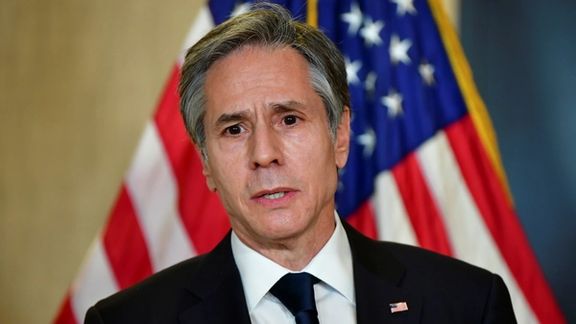
US Secretary of State Antony Blinken has spoken with Qatari foreign minister Mohammed bin Abdulrahman Al Thani about Iran and other issues of mutual interest.

US Secretary of State Antony Blinken has spoken with Qatari foreign minister Mohammed bin Abdulrahman Al Thani about Iran and other issues of mutual interest.
The two also discussed the United States’ strong and growing partnership with Qatar, including opportunities for greater cooperation on regional issues.
Qatar’s ruler, Emir Sheikh Tamim bin Hamad al-Thani, visited Tehran last week and held meetings with President Ebrahim Raisi and Supreme Leader Ali Khamenei.
On the sidelines of the NATO Foreign Ministerial summit in Berlin on Sunday, Blinken also held a meeting with German Foreign Minister Annalena Baerbock, UK Foreign Secretary Elizabeth Truss, and French Director General for Political and Security Affairs Philippe Errera to discuss the ongoing negotiations with Iran to revive the 2015 nuclear deal.
Talks in Vienna since April 2021 had reached a critical stage by mid-March, when diplomats announced a pause and returned to their capitals.
A major disagreement reportedly remains the US listing Iran’s Revolutionary Guards (IRGC) as a ‘foreign terrorist organization’ while Iran has also refused to drop calls for retribution for the US killing IRGC general Qasem Soleimani in Baghdad in 2020.
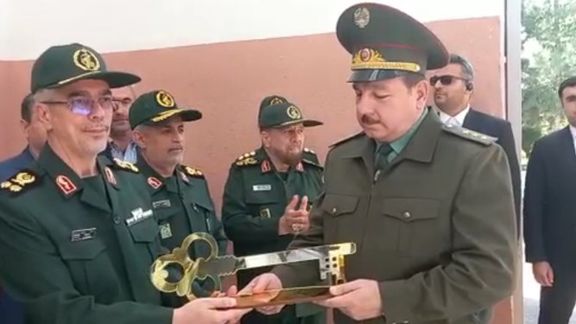
Iran has opened a factory in Tajikistan’s capital Dushanbe for manufacturing its Ababil-II drones in the Central Asian country.
The plant was inaugurated in a ceremony attended by chief of staff of the Islamic Republic's armed forces Major General Mohammad Bagheri and Tajik defense minister Colonel General Sherali Mirzo.
Describing the opening of the drone factory in Dushanbe as a turning point in military collaboration between the Islamic Republic and Tajikistan, Bagheri said at the opening ceremony that Iran is now able “to export military equipment to allied and friendly countries in addition to meeting domestic needs in order to increase security and lasting peace”.
Before the opening ceremony, Bagheri and Mirzo also held a meeting to discuss plans to cooperate in the fight against terrorism, drug trafficking, and organized crime.
During his stay in Dushanbe, the Iranian top general is also set to meet with President of Tajikistan Emomali Rahmon.
Late in April, the United States House of Representatives passed legislation – dubbed the Stop Iranian Drones Act (SIDA) -- requiring the president to sanction persons and entities over Iran's drone program.
Iran's drone technology has already been transferred to some of its proxies, including to the Houthis in Yemen.
Iran’s military drone program has expanded in recent years and UAV’s have been more frequently used in attacks in both on land and at sea. Several attacks in Iraq and at least one attack in Syria have targeted US forces.
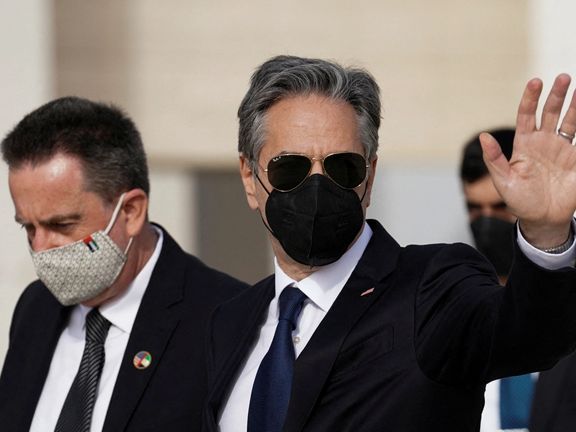
President Joe Biden sent a high-powered US delegation to the United Arab Emirates to offer condolences after the death of its ruler, in an apparent bid to repair frayed ties.
Washington's desire to improve ties has gained renewed urgency following Russia's invasion of Ukraine, which highlighted the relevance of Arab oil producers as Europe looks to cut its energy dependence on Russia.
OPEC heavyweights Saudi Arabia and the UAE have resisted calls to hike output to help tame crude prices that have aggravated inflation worldwide.
World leaders have visited Abu Dhabi to pay respects to new leader Sheikh Mohammed bin Zayed on the death of his half-brother.
US Vice President Kamala Harris landed in the Emirati capital for a short stay. She heads a delegation that includes nearly all of Biden's top national security aides, from the secretaries of state and defense and the head of the Central Intelligence Agency to high-ranking White House officials.
The make-up of the delegation reflects Washington's desire to show its commitment to the region, senior US officials say.
Harris will emphasize the intent to deepen ties across areas ranging from security and climate to space, energy and commerce, they added.
The UAE and Saudi Arabia both hold grudges against the Biden administration.
Biden has so far refused to deal directly with Saudi Crown Prince Mohammed as de facto ruler of the kingdom.
The Emiratis were frustrated by what they saw as lack of strong US support in the aftermath of missile attacks in January by Yemen's Iran-backed Houthis on Abu Dhabi.
Persian Gulf states have chafed at perceived declining US commitment to their security in the face of Iran's missile program and network of regional proxies.
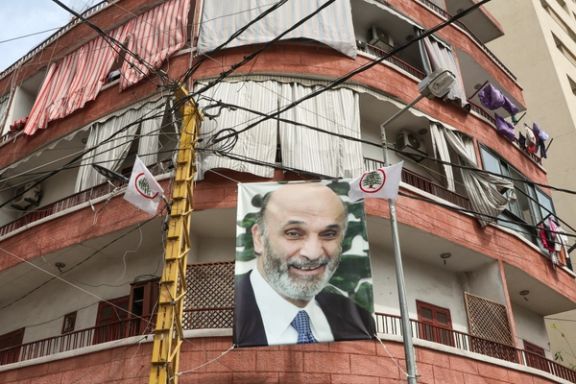
Iran Monday said it respected the “vote of the Lebanese people” as early results from Sunday’s Lebanese election showed setbacks for its ally Hezbollah.
“Iran has never tried to interfere in Lebanon’s internal affairs,” foreign ministry spokesman Saeed Khatibzadeh told his weekly news conference. While the grip of Lebanon’s sect-based parties remained strong, there were small gains by independent candidates reflecting desire for change since the 2019 ‘al-Thawra’ protests, an economic crisis that has left 80 percent of citizens in poverty, and the 2020 Beirut port explosion.
Reuters news agency cited three “sources” close to Hezbollah saying its alliance – with fellow Shia party Amal, the Christian Free Patriotic Movement (FPM), and some smaller groups – would lose its parliamentary majority.
But Lebanese government formation is always protracted given the reservation of political positions for members of particular sects. One picture caption doing the social-media rounds sarcastically highlighted a “leaked picture of the future head of the Lebanese parliament” – Amal leader Nabih Berri who has held the post since 1992 and will likely continue once various deals are done.
The speaker is a Shia under an understanding dating to 1943, with the president a Christian, and the prime minister a Sunni.
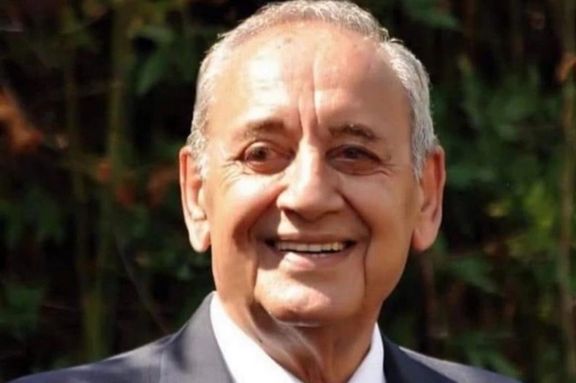
Critics of Hezbollah, including the Lebanese Forces, led by wartime Christian militia leader Samir Geagea, made gains, leaving analysts to suggest that no alliance would win the 65 seats required for a majority in the 128-seat parliament.
The Lebanese Forces, according to press spokesman Antoinette Geagea, won at least 20 seats, up from 15 in 2018, while its main Christian rival, the Hezbollah-allied Free Patriotic Movement, won 16, down from 18, its campaign manager Sayed Younis told Reuters.
Economic meltdown, political rivalries
Voter turnout across was down from the 49 percent of 2018, although there were reports of heavy voting by Lebanese expatriates. These elections were the first since the economy slid into meltdown in late 2019 following the collapse of a post-1990 economic system based on massive government borrowing from a banking sector buoyed by expatriate deposits attracted by high interest rates.
Rivalries between sect-based parties linked to regional powers have stymied efforts at structural reform while European donors have lost patience with corruption.
Since it first entered the cabinet in 2005, Hezbollah has become associated with government failings and has lost support among Shia voters. While the party has continued to provide valued social services in the face of growing economic hardship, many Lebanese questioned its role in the Syrian war, where it sent fighters to support President Bashar al-Assad.
Iranian allies also lost ground in the Iraqi elections of December 2021. But in Lebanon, as in Iraq, the formation of a new government is likely to be a protracted process while citizens deal with issues like inadequate electricity and rapidly rising prices.
It remains to be seen whether Hezbollah’s electoral setback will encourage the Sunni Arab Gulf states, including Saudi Arabia, to reconsider their political and financial disengagement from Lebanon going back to around 2015.
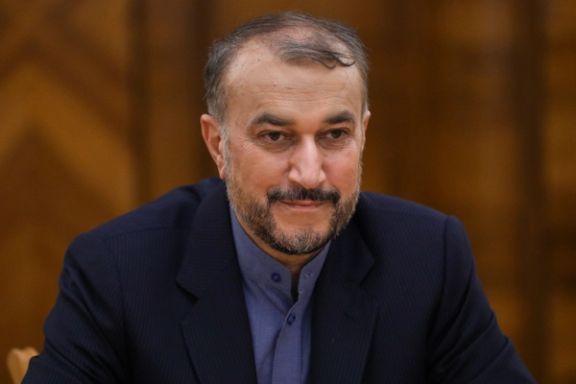
Iran's top diplomat has traveled to the United Arab Emirates (UAE)on Monday to pay his respects after the death of President Khalifa bin Zayed, Iranian state media reported.
Tehran has also welcomed the appointment of the new ruler Mohammed bin Zayed al-Nahyan also known as MbZ.
The trip by Hossein Amirabdollahian is the highest level visit by an Iranian official to the Gulf country since Yemen's Iran-aligned Houthi movement launched a deadly strike on the UAE in January.
While indirect talks between arch-foes Tehran and Washington to revive a 2015 nuclear deal have stalled since March, Amirabdollahian's trip coincides with the visit of a high-ranking US delegation, headed by Vice President Kamala Harris, to Abu Dhabi to also offer condolences on the death of President Khalifa bin Zayed last week.
In 2019, the UAE started engaging with Iran following attacks on tankers off Persian Gulf waters and on Saudi energy infrastructure.
Iran's deputy Foreign Minister Ali Bagheri Kani visited the UAE in November, when he said the two countries had agreed to open a new chapter in bilateral relations.
UAE strongman Sheikh Mohammed bin Zayed al-Nahyan, who was formally elected president by the country's federal supreme council on Saturday, led a realignment of the Middle East that created a new anti-Iran axis with Israel and fought a rising tide of political Islam in the region.
Reporting by Reuters
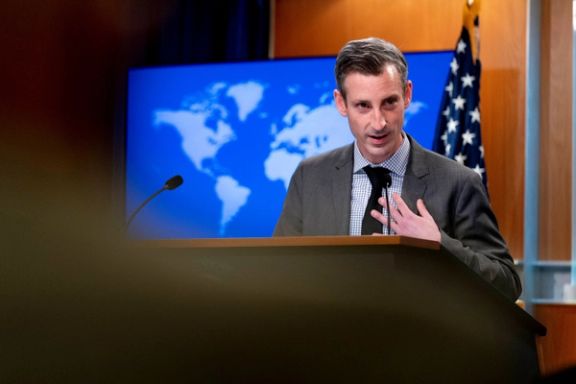
The United States has expressed support for anti-government protests in Iran, saying the Iranian people have a right to hold their government accountable for the current situation.
US State Department Spokesperson Ned Price said in a tweet on Sunday, “We support their rights to peaceful assembly and freedom of expression online and offline -- without fear of violence and reprisal”. “Brave Iranian protestors are standing up for their rights”.
This is the first official reaction by the Biden Administration to the ongoing protests in several Iranian cities, triggered by a sudden hike in food prices. But the unrest has quickly turned into anti-Islamic Republic protests with people chanting slogans against top government leaders.
Sunday night, people were heard chanting “Death to Raisi”, “Death to Khamenei”, as some gunshots were heard in Shahre Kord, the center of Chaharmahal and Bakhtiari provinc. Some reports said that security forces directly fired at demonstrators. So far, five deaths have been reported in more than a week of protests. Security forces also use batons and tear gas against protesters.
Many citizens have also been detained but there is no total number reported by reliable sources. Many younger people are among the detainees and some reports speak of security forces arresting whole families if some members were identified during protests.